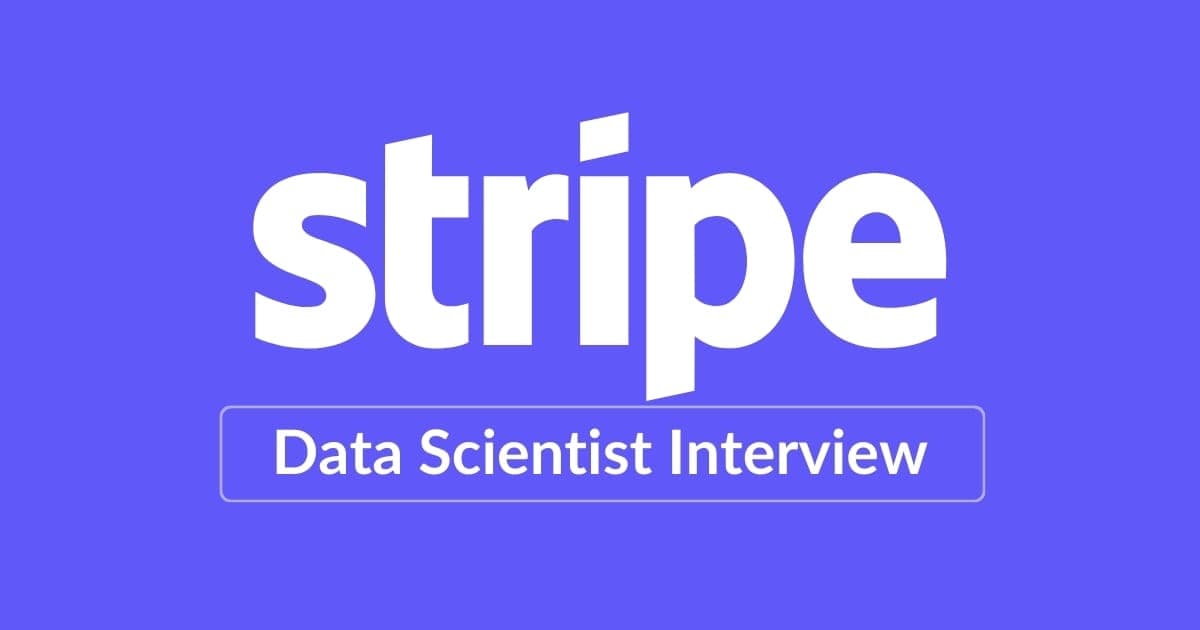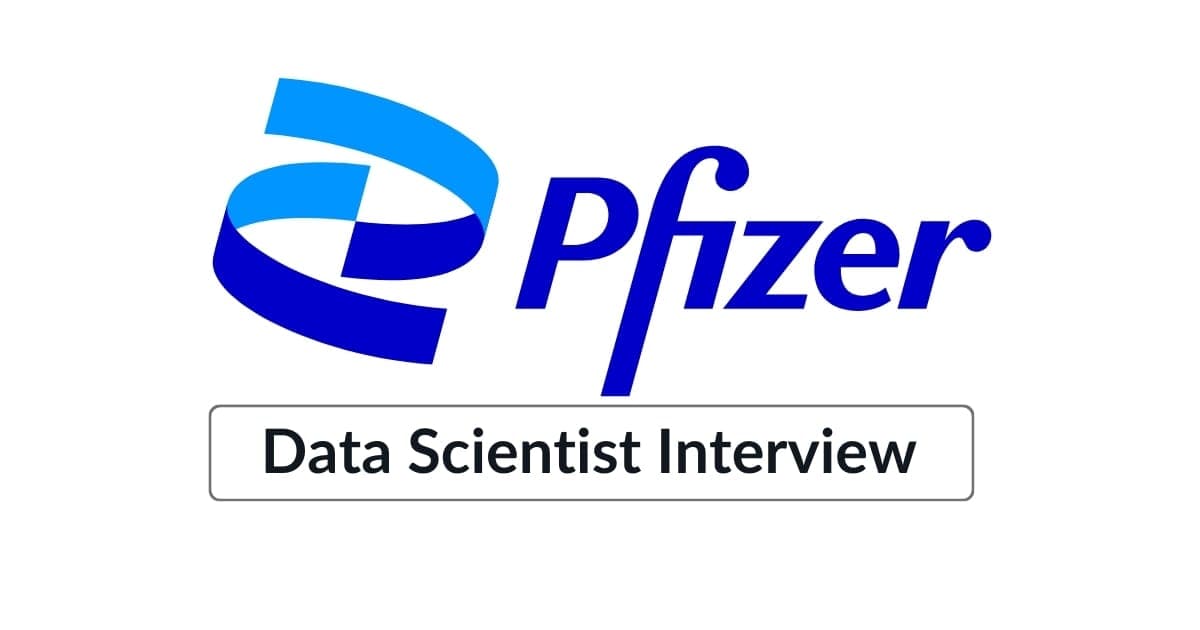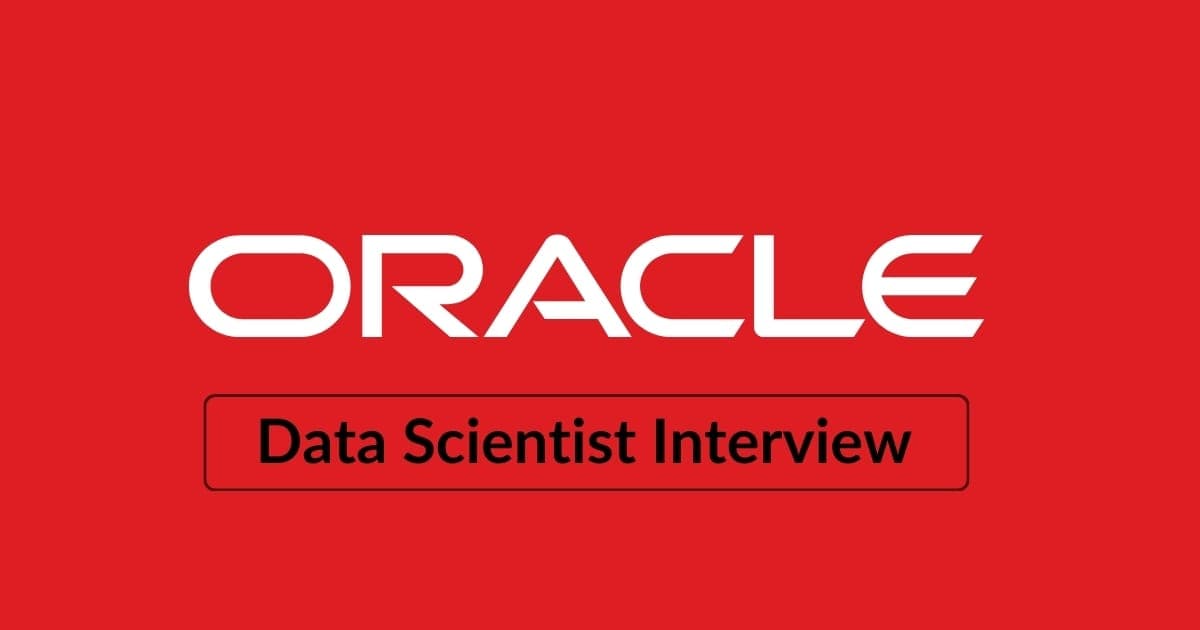Are you preparing for a Data Scientist interview at Shopify? This comprehensive guide will provide you with insights into Shopify’s interview process, the key skills they value, and strategies to help you excel.
As a leading eCommerce platform, Shopify is on a mission to make commerce better for everyone, and their Data Scientist role is crucial in achieving this goal. Whether you are an experienced data professional or looking to advance your career, understanding Shopify’s unique interview approach can give you a significant advantage.
In this blog, we will explore the interview structure, highlight the types of questions you can expect, and share valuable tips to help you navigate each stage with confidence.
Let’s dive in 👇
1. Shopify Data Scientist Job
1.1 Role Overview
At Shopify, Data Scientists play a pivotal role in advancing the company's mission to make commerce better for everyone. This position requires a combination of technical prowess, analytical insight, and a strategic mindset to interpret and leverage data for impactful business decisions. As a Data Scientist at Shopify, you will collaborate with diverse teams to tackle complex problems and enhance the merchant and customer experience through data-driven solutions.
Key Responsibilities:
- Engage in strategic projects and conduct deep dives to inform team strategies and investment plans.
- Set north star metrics, KPIs, and targets to guide team performance.
- Build self-serve dashboards to support ongoing partner performance measurement.
- Conduct performance analyses on pilots, product launches, and go-to-market initiatives.
- Support Monthly and Quarterly Business Reviews by sharing data insights and performance metrics.
- Surface executive-level insights to inform executive briefs, investor relations, and external reports.
- Craft compelling data narratives for executives that accurately reflect partner performance.
Skills and Qualifications:
- Strong analytical skills with experience in creating analytical reports and self-serving dashboards.
- Proficiency in setting north-star metrics and KPIs, and contributing data insights to strategic analysis.
- 3+ years of experience as a Data Scientist.
- Bachelor’s or Master’s degree in Information Technology, Mathematics, Computer Science, or equivalent preferred.
- Extensive experience with Python or PySpark and software engineering fundamentals.
- Deep understanding of advanced SQL techniques, dimensional modeling, and scaling ETL pipelines.
- Experience with applied statistics and quantitative modeling.
1.2 Compensation and Benefits
Shopify offers a competitive compensation package for Data Scientist roles, reflecting its commitment to attracting and retaining top talent in the data, machine learning, and AI fields. The compensation structure includes a base salary, stock options, and performance bonuses, along with various benefits that promote work-life balance and professional development.
Example Compensation Breakdown by Level:
| Level Name | Total Compensation | Base Salary | Stock (/yr) | Bonus |
|---|---|---|---|---|
| L4 (Data Scientist) | $151K | $136K | $15.2K | $0 |
| L5 (Senior Data Scientist) | $180K | $162K | $17.7K | $83K |
| L6 (Staff Data Scientist) | $239K | $208K | $28.7K | $1.8K |
| L7 (Principal Data Scientist) | $311K | $245K | $66.5K | $0 |
Additional Benefits:
- Participation in Shopify’s stock programs, including restricted stock units (RSUs).
- Comprehensive health and dental insurance.
- Flexible work hours and remote work options.
- Professional development opportunities, including training and conferences.
- Generous vacation policy and paid time off.
Tips for Negotiation:
- Research compensation benchmarks for data scientist roles in your area to understand the market range.
- Consider the total compensation package, which includes stock options, bonuses, and benefits alongside the base salary.
- Highlight your unique skills and experiences during negotiations to maximize your offer.
Shopify’s compensation structure is designed to reward innovation, collaboration, and excellence. For more details, visit Shopify’s careers page.
2. Shopify Interview Process and Timeline
Average Timeline: 4-6 weeks
2.1 Resume Screen (1-2 Weeks)
The first stage of Shopify’s Data Scientist interview process is a resume review. Recruiters assess your background to ensure it aligns with the job requirements. Given the competitive nature of this step, presenting a strong, tailored resume is crucial.
What Shopify Looks For:
- Proficiency in Python, SQL, and data analysis techniques.
- Experience with A/B testing, machine learning, and statistical methods.
- Projects that demonstrate business impact and innovative problem-solving.
- Alignment with Shopify’s emphasis on cultural fit and real-world scenarios.
Tips for Success:
- Highlight experience with eCommerce analytics, customer behavior analysis, or predictive modeling.
- Emphasize projects involving data-driven decision-making and machine learning applications.
- Use keywords like "data visualization," "algorithm development," and "business insights."
- Tailor your resume to showcase alignment with Shopify’s mission of making commerce better for everyone.
2.2 Recruiter Phone Screen (20-30 Minutes)
In this initial call, the recruiter reviews your background, skills, and motivation for applying to Shopify. They will provide an overview of the interview process and discuss your fit for the Data Scientist role.
Example Questions:
- Why do you want to join Shopify?
- Can you describe a project where you used data to solve a business problem?
- What tools and techniques do you prefer for data analysis?
Prepare a concise summary of your experience, focusing on key accomplishments and business impact.
2.3 Technical Screen (45-60 Minutes)
This round evaluates your technical skills and problem-solving abilities. It typically involves live coding exercises, data analysis questions, and case-based discussions, conducted via an interactive platform.
Focus Areas:
- SQL: Write queries using joins, aggregations, and subqueries.
- Statistical Analysis: Explain concepts like hypothesis testing and regression.
- Machine Learning: Discuss model evaluation metrics and feature engineering.
- Product Case Analysis: Analyze data to generate actionable insights and propose business recommendations.
Preparation Tips:
Practice SQL queries involving real-world scenarios, focusing on eCommerce data. You can practice SQL questions on DataInterview SQL engine.
2.4 Onsite Interviews (3-5 Hours)
The onsite interview typically consists of multiple rounds with data scientists, managers, and cross-functional partners. Each round is designed to assess specific competencies.
Key Components:
- Technical Deep Dive: Discuss past projects and technical decisions.
- Real-World Business Problems: Address complex scenarios involving A/B testing or machine learning models.
- Product Case Studies: Define key metrics, evaluate product performance, and propose data-driven improvements.
- Behavioral Interviews: Discuss past projects, collaboration, and adaptability to demonstrate cultural alignment with Shopify.
Preparation Tips:
- Review core data science topics, including statistical testing, experiment design, and machine learning algorithms.
- Research Shopify’s products and services, especially in the eCommerce space, and think about how data science could enhance them.
- Practice structured and clear communication of your solutions, emphasizing actionable insights.
For Personalized Guidance:
Consider mock interviews or coaching sessions to simulate the experience and receive tailored feedback. This can help you fine-tune your responses and build confidence.
Shopify Data Scientist Interview Questions
Probability & Statistics Questions
Probability and statistics questions at Shopify assess your understanding of statistical methods and your ability to apply them to real-world data problems.
Example Questions:
- If your manager runs an A/B test with 20 different variants and finds one significant result, would you be suspicious of the findings?
- How would you determine if providing free shipping on a controlled group would increase conversions?
- What is the purpose of cross-validation?
- Explain the difference between supervised and unsupervised learning.
- How would you handle missing data in a dataset?
For more insights into statistical methods, check out the Applied Statistics Course.
Machine Learning Questions
Machine learning questions evaluate your knowledge of algorithms, model building, and problem-solving techniques applicable to Shopify’s data-driven environment.
Example Questions:
- Explain the difference between supervised and unsupervised learning.
- How would you build a job recommendation feed?
- What is wrong with the given code and how would you fix it?
- Program Conway’s game of life in Python.
- How do you analyze if a product is successful?
Enhance your machine learning skills with the Machine Learning Course.
SQL Questions
SQL questions assess your ability to manipulate and analyze data using complex queries. Below are example tables Shopify might use during the SQL round of the interview:
Orders Table:
| OrderID | UserID | OrderDate | TotalAmount | Status |
|---|---|---|---|---|
| 1 | 101 | 2023-01-15 | 150.00 | Completed |
| 2 | 102 | 2023-02-20 | 200.00 | Pending |
| 3 | 103 | 2023-03-05 | 350.00 | Completed |
Users Table:
| UserID | UserName | JoinDate |
|---|---|---|
| 101 | Alice | 2023-01-01 |
| 102 | Bob | 2023-02-01 |
| 103 | Carol | 2023-03-01 |
Example Questions:
- Total Revenue: Write a query to calculate the total revenue from completed orders.
- Recent Users: Write a query to find users who joined in the last month.
- Order Status: Write a query to count the number of orders by status.
- Average Order Value: Write a query to determine the average order value for completed orders.
- User Order Count: Write a query to find the number of orders placed by each user.
Behavioral Questions
Behavioral questions assess your ability to work collaboratively, navigate challenges, and align with Shopify’s mission and values.
Example Questions:
- Why do you want to join Shopify?
- Describe a previous project of your choice, frame and solve a problem given a scenario.
- How do you approach balancing multiple projects and deadlines?
- Share an example of a challenging dataset you worked with and how you handled it.
- Tell me about a time you disagreed with a teammate on a data analysis approach and how you resolved it.
4. How to Prepare for the Shopify Data Scientist Interview
4.1 Understand Shopify’s Business Model and Products
To excel in open-ended case studies and product-focused interviews at Shopify, it’s crucial to understand their business model and product offerings. Shopify is a leading eCommerce platform that empowers businesses of all sizes to create and manage their online stores.
Key Areas to Understand:
- Revenue Streams: How Shopify generates income through subscription plans, transaction fees, and additional services like Shopify Payments and Shopify Capital.
- Merchant Experience: The role of data science in enhancing the merchant and customer experience through data-driven insights and solutions.
- Product Ecosystem: Familiarize yourself with Shopify’s suite of products, including Shopify POS, Shopify Plus, and the Shopify App Store.
Understanding these aspects will provide context for tackling product and business case questions, such as analyzing the impact of new features or proposing data-driven strategies for growth.
4.2 Master Shopify’s Key Metrics
Familiarity with Shopify’s key metrics is essential for excelling in product case and technical interviews.
Key Metrics:
- Merchant Metrics: Monthly recurring revenue (MRR), churn rate, and customer lifetime value (CLV).
- Product Metrics: Feature adoption rates, conversion rates, and average order value (AOV).
- Operational Metrics: System uptime, transaction processing times, and customer support response times.
These metrics will help you navigate product case questions and demonstrate your understanding of data’s impact on business decisions.
4.3 Align with Shopify’s Mission and Values
Shopify’s mission is to make commerce better for everyone. Aligning your preparation with this mission is key to showcasing your cultural fit during interviews.
Core Values:
- Innovation, collaboration, and customer focus.
- Empowerment of entrepreneurs and small businesses.
- Commitment to data-driven decision-making and problem-solving.
Showcase Your Fit:
Reflect on your experiences where you:
- Used data to create customer-centric solutions.
- Innovated on existing processes or products.
- Collaborated effectively with diverse teams to achieve shared goals.
Highlight these examples in behavioral interviews to authentically demonstrate alignment with Shopify’s mission and values.
4.4 Strengthen Your SQL and Coding Skills
Shopify emphasizes technical rigor, making SQL and programming proficiency essential for success in their data science interviews.
Key Focus Areas:
- SQL Skills:
- Master joins (INNER, LEFT, RIGHT).
- Practice aggregations (SUM, COUNT, AVG) and filtering with
GROUP BYandHAVING. - Understand window functions (RANK, ROW_NUMBER).
- Build complex queries using subqueries and Common Table Expressions (CTEs).
- Programming Skills:
- Python: Focus on data manipulation with pandas and NumPy.
- Machine Learning: Brush up on libraries like scikit-learn for model building and evaluation.
Preparation Tips:
- Practice SQL queries on real-world scenarios, such as eCommerce data analysis.
- Use platforms like DataInterview Bootcamp for additional practice!
- Be ready to explain your logic and optimization strategies during coding challenges.
4.5 Practice with a Peer or Interview Coach
Simulating the interview experience can significantly improve your confidence and readiness. Mock interviews with a peer or coach can help you refine your answers and receive constructive feedback.
Tips:
- Practice structuring your answers for product case and technical questions.
- Review common behavioral questions to align your responses with Shopify’s values.
- Engage with professional coaching services such as DataInterview.com for tailored, in-depth guidance and feedback.
Consider engaging with coaching platforms like DataInterview.com for tailored preparation. Mock interviews will help you build communication skills, anticipate potential challenges, and feel confident during Shopify’s interview process.
5. FAQ
- What is the typical interview process for a Data Scientist at Shopify?
The interview process generally includes a resume screen, a recruiter phone screen, a technical screen, and onsite interviews. The entire process typically spans 4-6 weeks. - What skills are essential for a Data Scientist role at Shopify?
Key skills include proficiency in Python and SQL, strong analytical abilities, experience with machine learning and statistical analysis, and the capability to create self-serve dashboards and analytical reports. - How can I prepare for the technical interviews?
Focus on practicing SQL queries, coding challenges in Python, and understanding statistical concepts. Familiarize yourself with A/B testing methodologies and machine learning algorithms relevant to eCommerce data. - What should I highlight in my resume for Shopify?
Emphasize your experience with data-driven decision-making, projects that demonstrate business impact, and your ability to work collaboratively across teams. Tailor your resume to reflect alignment with Shopify’s mission of improving commerce for everyone. - How does Shopify evaluate candidates during interviews?
Candidates are assessed on their technical skills, problem-solving abilities, understanding of eCommerce metrics, and cultural fit. Emphasis is placed on collaboration, innovation, and the ability to derive actionable insights from data. - What is Shopify’s mission?
Shopify’s mission is "to make commerce better for everyone," which underscores their commitment to empowering entrepreneurs and enhancing the merchant and customer experience through data-driven solutions. - What are the compensation levels for Data Scientists at Shopify?
Compensation for Data Scientists at Shopify varies by level, ranging from approximately $151K for L4 positions to $311K for L7 (Principal Data Scientist) roles, including base salary, stock options, and performance bonuses. - What should I know about Shopify’s business model for the interview?
Understanding Shopify’s business model is crucial. Familiarize yourself with their revenue streams, including subscription plans, transaction fees, and additional services like Shopify Payments. This knowledge will help you tackle product case questions effectively. - What are some key metrics Shopify tracks for success?
Key metrics include Monthly Recurring Revenue (MRR), customer lifetime value (CLV), churn rate, conversion rates, and average order value (AOV). Understanding these metrics will aid in your analysis during interviews. - How can I align my responses with Shopify’s mission and values?
Highlight experiences that demonstrate your commitment to innovation, collaboration, and customer-centric solutions. Discuss how you have used data to drive impactful business outcomes and enhance user experiences.



